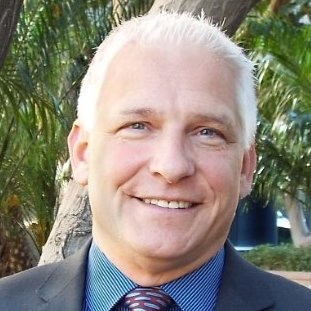A CONVERSATION BETWEEN PHIL CALHOUN AND DANNIEL WEXLER
Phil Calhoun: Danny, your law career has specialized in and focused on estate planning — mostly for business owners. With the many business owners that you’ve worked with, can you share the issues you see with business owners and succession planning?
Danny Wexler: Let’s look at the facts. There are about 6 million privately held companies in America.
U.S. census data shows 63% of these are owned by baby boomers who range from 56 to 73 years old.
Boomers are set to reach the age of 70 within 14 years which represents 4 million businesses poised for transition.
The impact of this transition will not only be on the owner and their loved ones but on employees, vendors, customers, communities and charities. The transition process, often called “business exit planning,” needs to be explained.
Resources need to be made available to help owners develop a well organized plan and provide a successful outcome for the business owner. This is vitally important as most recently only 20-30% of business transitions are considered a success in the minds of business owners. This is due mostly to the poor end result where only 2 out of ten businesses actually sell. This trend calls for professional planning and when done with a proven professional approach, the chances of success are greatly increased. Health insurance brokers can make a huge impact as they are often advisors who are close to business owners.
Calhoun: We have worked on several exit planning cases both for health brokers and business owner clients. When it comes to health brokers who want to help their business owner clients what is a good first step?
Wexler: Matching business owners with exit planning advisors is simply being in what I describe the “’Connector’ Role.”
A first step brokers can take is to get to know profess-ionals who specialize in this planning area such as attorneys, CPAs, financial planners, valuation experts, bankers, and Mergers & Acquisition professionals. We already know health insurance brokers regularly solve problems business owners face, so adding exit planning to their list of helpful connections is not that different from connecting owners with other professionals to help owner/clients seek business and personal problem solutions.
Calhoun: A few years ago you invited me to attend meetings where exit planning professionals presented case studies. This was a good introduction to the exit planning topic. Some exit planning organizations have resources online which are helpful to get comfortable with the exit planning process. What do you suggest a benefit broker do to get an introduction to exit planning?
Wexler: Brokers can connect their business owners to exit planning professionals once they have taken the time to build a few key relationships with advisors who have experience in this area. The best way to connect is to look for tax and financial planners and lawyers who have this experience. The Exit Planning Institute (EPI) and the Southern California Institute (SCI) are ideal places to start. Our Orange County EPI chapter, which meets on the second Thursday experience. The Exit Planning Institute (EPI) and the Southern California Institute (SCI) are ideal places to start. Our Orange County EPI chapter, which meets on the second Thursday of the month at Maggiano’s, provides all professionals an opportunity to connect in meetings and do online case review. There are other EPI chapters up and down the state of California, as well as across the nation, where benefit brokers can connect with this resource. SCI has also got a tremendous amount of information available on this process suited for business owners.
Calhoun: I have enjoyed the EPI’s great online resources. The local chapter meetings and state conferences are also a great way to learn from experts about case studies. When a benefit broker has a client question what do you suggest they do?
Wexler: Look to collaborate with like minded pro-fessionals. Just like benefit brokers work with a General Agency and carrier reps to solve a client’s benefit challenges, brokers can also connect with exit planning professionals to help their clients. There are many unique planning issues that are present in exit planning and the dynamics are always a blend of personal and professional issues. Having access to professionals who believe in a collaborative team approach is key to problem solving for each business owner.
My firm, Strazzeri Mancini LLP, has the expertise and ability to solve most client concerns. Normally we work with new clients through an intro from a close and trusted advisor who introduces us to a business owner and we either lead the planning process or join and provide assistance as needed. So, health brokers located in California with business owner clients can connect with a local expert or we can help. In all cases, health brokers stay involved as a member of the planning team. In many cases a comprehensive planning solution involves various insurances such as benefit packages which work to retain key employees throughout a business sale. Keeping key employees in place contributes to the value of a business and attracts more buyers. Health brokers who bring in an experienced exit planning team will both learn a great deal and participate in the success.
Calhoun: I can validate how valuable the learning process is for business owner clients. Do you have other statistics we need to be aware of?
Wexler: Phil, I know we work together on cases involving health brokers who look to sell their book of business. The rules on exit planning that apply to business owners apply to health brokers and then some. I like to say “failing to plan is planning to fail.”
Surveys show that most business owners do not have a succession plan in place to keep their business afloat if they become disabled or die. With the right insurances and other planning tools most business owners can help employees and loved ones through their inactivity or even death.
This is not the way health brokers succession planning works. Brokers receive what I call “mailbox money” which is residual income through commissions. The risk to residual commissions is the health broker’s inability to continue these commissions due to the insurance carrier requirements for an active broker. Insurance carrier agreements clearly state when a broker’s license or certification is no longer active then commissions stop. Assigning commissions to a corporate entity or even another broker is not a lasting plan to continue commissions should something happen to a health broker. Assignment is temporary and ends upon the death of the assignor.
Phil, as you have pointed out for years, health broker’s need a written agreement with a named licensed and certified successor to properly continue their health insurance commissions. The agreement must define how the revenues will be directed in the event of the health broker’s retirement, disability or death. Due to the carrier requirements, planning is more important than ever for active health brokers. Of course a broker looking to sell will need a buyer. A written agreement which includes the purchase price and payout terms along with performance after sale requirements is mandatory and is common practice for ALL business sales.
Calhoun: Thank you, Danny, for your time explaining this huge trend in business transition and for great suggestions
for ways health brokers can get involved. I hope brokers will consider accessing the resources listed below.
- Strazzeri Mancini and Associates (strazzerimancini.com) is a leading law firm in the areas of estate, business and tax planning, and family wealth counseling. They have expertise with affluent families to get to the heart of highly relevant matters and resolve complex matters which in most cases are unique to each situation. Many cases involve work with other attorneys and planners close to the business owner in a comprehensive and collaborative effort to assist business owners and their family.
- Southern California Institute (scinstitute.org) is a thought leader community providing resources, education, and advice through collaborative think tanks, events, programs, online content, and introductions.
- The Founders Group (foundersgroup.biz) leads businesses through all phases of transition where increased clarity, net cash flow, and market value expands and solidifies choices for business transitions. Getting to when, how, how much, and to whom is the purpose of the group’s planning services.

DANNIEL WEXLER is an attorney and counselor at Strazzeri Mancini, LLC. He is a published author and renowned speaker. danny@strazzerimancini.com
858-200-1900
 PHIL CALHOUN is president of Integrity Advisors. His ebook “The Health Broker’s Guide: How to Protect, Grow and Sell
PHIL CALHOUN is president of Integrity Advisors. His ebook “The Health Broker’s Guide: How to Protect, Grow and Sell
Your Commissions” is free online at www.healthbrokersguide.com.
His goal is to help active brokers reach 100% commission protection and retiring brokers make the exit planning process work for them. Calhoun consults with brokers statewide.
